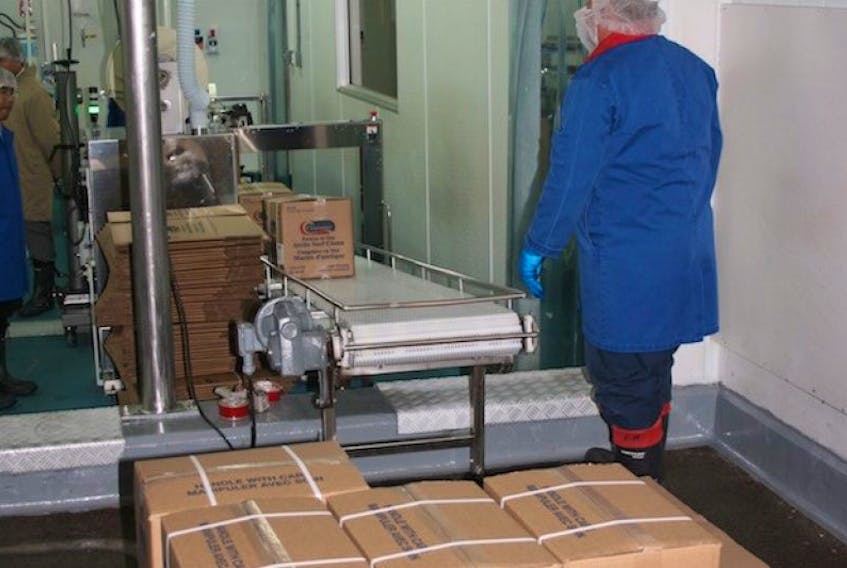OTTAWA – The monopoly held by Clearwater Seafoods Ltd. on Arctic surf clams has officially come to an end.
The Nova Scotia-based company, however, is vowing to fight back.
On Wednesday, Feb. 21, Fisheries and Oceans Minister Dominic LeBlanc announced a new license for the species has been issued to the Five Nations Clam Company.
The new entity is made up of First Nations from Quebec, Nova Scotia, Newfoundland and Labrador, Prince Edward Island and New Brunswick, according to a news release from the Department of Fisheries and Oceans (DFO).
The company will partner with Premium Seafoods, based in Cape Breton, to harvest, process and market the catch.
"The inclusion of participants from each Atlantic province and Quebec will allow the benefits of this lucrative fishery to flow to a broad group of First Nations, and will help create good, middle-class jobs for Indigenous peoples in each Atlantic province and Quebec,” LeBlanc said.
“This is a powerful step toward reconciliation."
LeBlanc announced last September a fourth Arctic surf clam licence would added for the 2018 fishery with 25 per cent of the existing total allowable catch (TAC) to go to the new entrant.
Clearwater holds the other three Arctic surf clam licences, using its plant in Grand Bank as its primary processing facility for the species.
The new license will be issued within the current TAC of roughly 38,000 tonnes, Tuesday's news release confirmed.
The conditions placed on awarding the new license required the new entrant to be majority Canadian-owned and an Indigenous entity located in the Atlantic provinces or Quebec.
“DFO assessed eligible proposals received in the context of the proposed direct and significant benefits that will be generated for Indigenous communities in the applicant's geographic area including shore-based employment, skills training and other community benefits,” the news release stated.
“Priority was given to proposals received from an aggregate of multiple communities that could demonstrate capacity to collectively manage this fishery in order to benefit several Indigenous communities.”
Clearwater disappointed
In a news release Thursday, Feb. 22, Clearwater said it was disappointed with the minister’s decision, claiming it will mean the loss of middle-class jobs and the conversion of full-time jobs to temporary seasonal work.
The company, which had agreed to be the operational partner with 13 Mi’kmaq bands from Nova Scotia in an unsuccessful bid for the licence, said it will be pursuing its legal options to address what it called a “failure in public policy and abuse of power by the minister.”
“Clearwater purchased licences and quota to participate in this fishery. We have invested hundreds of millions to develop the fishery and the market, including $156 million of investments in the last three years,” the release stated.
“In this decision to expropriate investment value and undermine the good faith capital investment decisions of the private sector, the minister has destabilized the investment climate in the Canadian fisheries and the Canadian natural resource sector.
“Clearwater will be required to move expeditiously to make adjustments to our business in order to maintain shareholder value, reduce the overcapacity that has been created by this decision, and protect the value of the hundreds of remaining jobs related to this fishery in coastal communities of Atlantic Canada.”
Clearwater said it made $91.9 million from Arctic surf clam sales in 2016, roughly 15 per cent of the company’s total revenue. The company said the loss of direct access to 25 per cent of the TAC for the species is expected to impact its operations and financial performance, but to what extent is still uncertain.
“The company will continue to explore strategies to mitigate any negative impacts of this decision,” the news release stated.
‘Unprecedented move’
LeBlanc’s announcement a new entrant was coming for Arctic surf clams was a controversial one in Newfoundland and Labrador, particularly in Grand Bank, where Mayor Rex Matthews was vocal in his opposition.
At a council meeting last fall, Matthews lamented the fact Clearwater’s Grand Bank plant might be in for blow if a new entrant was approved and recalled the major efforts undertaken by the town in the early 1990s to establish the operation following the cod moratorium.
In other comments he made last fall, Matthews said the town’s opposition to adding a new license wasn’t about Clearwater.
“The federal government, by this decision, is taking full-time, middle class jobs from rural Newfoundland and Labrador and rural Canada,” Matthews said at the time.
“The town of Grand Bank should not bear 100 per cent of the burden for what the minister is trying to do.”
Matthews expanded on those grievances in a separate news release issued by the town on Thursday.
“This decision will have a negative impact on both fish harvesters and seafood production workers whose full-time middle-class jobs are now in jeopardy because of the minister’s decision,” Matthews said.
“This is an unprecedented move by the federal minister in expropriating 25 per cent of the Arctic surf clam quota that has been processed in Grand Bank for the past 27 years and moving it elsewhere. If this is best the Government of Canada and the minister of DFO can do for the Indigenous people and reconciliation by robbing one community of their economic well-being and putting it at risk, then I don’t see much hope for the reconciliation process.”
Matthews claimed the reality of the decision is that splitting up the current quota means it will not be enough to provide full-time employment, harvesting clams at sea or processing them onshore, for either company.
“If there was a problem with the sustainability of the clam resource and you had to take a quota cut to ensure long term sustainability, people would understand and support such a measure; however, this is not the case,” he said.
“The minister has arbitrarily removed 25 per cent of the quota from Grand Bank without any consideration for the workers, town and the region. This minister doesn’t seem to have any grasp of the clam fishery and the consequences of his actions on the livelihood of so many people.”









